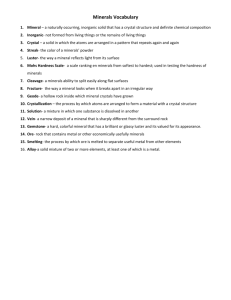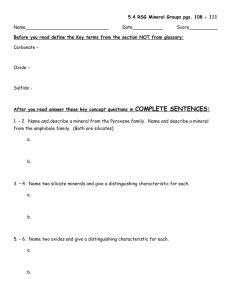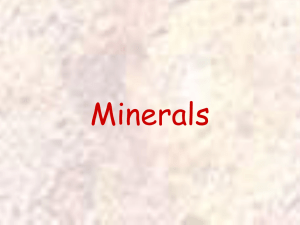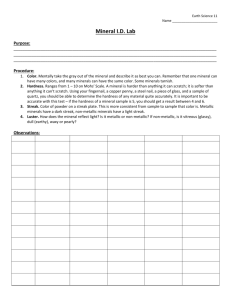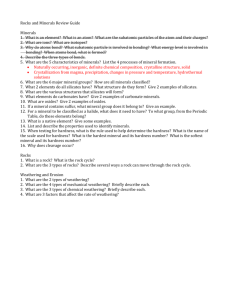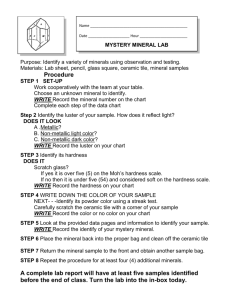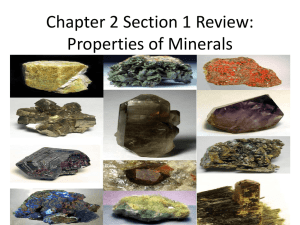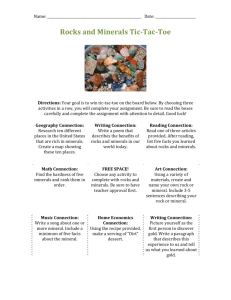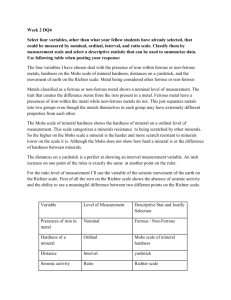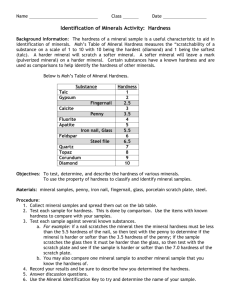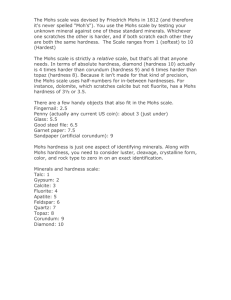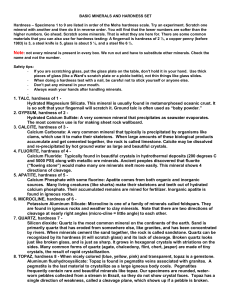Name: ___________Answer Key____________________Period
advertisement
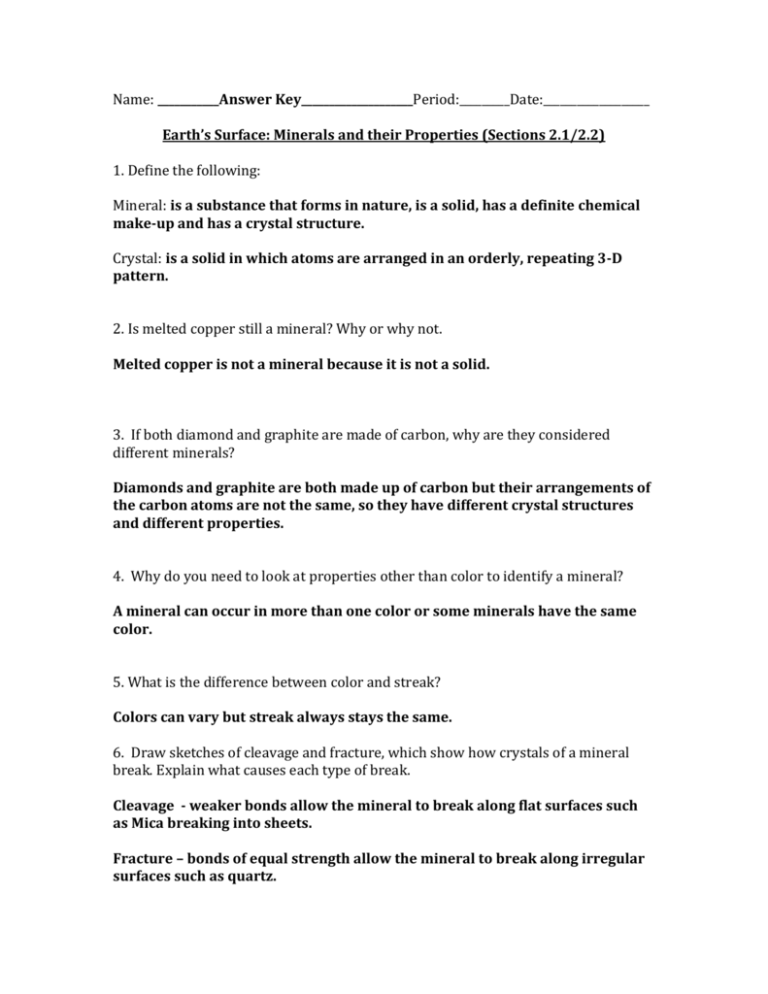
Name: ___________Answer Key____________________Period:_________Date:___________________ Earth’s Surface: Minerals and their Properties (Sections 2.1/2.2) 1. Define the following: Mineral: is a substance that forms in nature, is a solid, has a definite chemical make-up and has a crystal structure. Crystal: is a solid in which atoms are arranged in an orderly, repeating 3-D pattern. 2. Is melted copper still a mineral? Why or why not. Melted copper is not a mineral because it is not a solid. 3. If both diamond and graphite are made of carbon, why are they considered different minerals? Diamonds and graphite are both made up of carbon but their arrangements of the carbon atoms are not the same, so they have different crystal structures and different properties. 4. Why do you need to look at properties other than color to identify a mineral? A mineral can occur in more than one color or some minerals have the same color. 5. What is the difference between color and streak? Colors can vary but streak always stays the same. 6. Draw sketches of cleavage and fracture, which show how crystals of a mineral break. Explain what causes each type of break. Cleavage - weaker bonds allow the mineral to break along flat surfaces such as Mica breaking into sheets. Fracture – bonds of equal strength allow the mineral to break along irregular surfaces such as quartz. 7. What is the Mohs scale? What determines a mineral’s hardness? The Mohs scale defines the hardness of minerals. Minerals hardness values range from 1 to 10, from the softest to the hardest mineral. A minerals hardness is the resistance to being scratched. 8. Suppose you could scratch a mineral with topaz but not with feldspar. What would this tell you about the minerals hardness? Topaz has a hardness of 8 on the Mohs scale and feldspar has a hardness of 6 so the mineral must have a hardness somewhere in between because a mineral can be scratched only by other minerals that have the same hardness or are harder.
